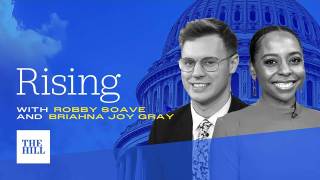The Supreme Court can’t punt on Trump’s disqualification without threatening the Constitution
When the Supreme Court reviews Colorado’s decision to exclude President Trump from the state’s ballot, it will be delving into wholly uncharted territory.
The Supreme Court has never interpreted the constitutional provision prohibiting former office-holding insurrectionists from holding future office. Several leading constitutional scholars argue that, in part for this reason, the constitutional ban cannot be enforced without prior congressional enactment of guiding directives. The high court may consider this option to provide a welcome off-ramp.
But the position that the constitutional ban on insurrectionist office holders is not activated absent congressional legislation is not only incorrect, it also threatens the very foundations of America’s constitutional system.
While our governmental system embraces democracy, our Constitution is anything but democratic. Our elected representatives cannot repeal any part of the Constituion by majority vote. Our system was grounded not only in democracy but in the need for checks and balances.
The Framers recognized that democracies were always vulnerable to factions and tyranny. They therefore constructed the Constitution as a check on legislative and executive decisions. It was also decided early on that the unrepresentative, unaccountable courts would have final say as to the meaning of the Constitution’s directives. After all, what would be the point of imposing limits on majorities if those majorities had final say as to what those directives mean?
To undermine that long-accepted system is to threaten the delicate balance between democracy and constitutionalism. Without some constitutional directive to the contrary, it is dangerous for the Supreme Court to defer to Congress in the interpretation of the Constitution.
Section 3 of the 14th Amendment provides that no one who has “previously taken an oath … as an officer of the United States … to support the Constitution of the United States” shall hold “any office … under the United States” if they have engaged in insurrection or rebellion against the United States. It further provides that “Congress may by a vote of two-thirds of each House, remove such disability.”
Certain scholars, noting that the 14th Amendment’s Section 5 vests in Congress the power to enforce the Amendment’s directives through legislation, have argued that Congress must first enact statutory guidelines for Section 3 to be triggered. This position is wrong for two reasons.
First, it is inescapably inconsistent with Section 3’s explicit text. As already noted, Section 3 states that the ban may be “remove[d]” by a vote of two-thirds of both houses of Congress. If Section 3’s ban doesn’t exist prior to congressional legislation, there would of course be nothing to be “remove[d]” in the first place. Congress’s role is confined to the option to remove that ban, not by enacting legislation, which requires only a majority vote, but by a supermajority vote. The approach advocated by these scholars (as well as in Trump’s brief), in sharp contrast, argues that Congress prevents the ban from going into effect simply by refusing to legislate.
More importantly, the scholars’ approach ignores the special role served by the Constitution. The Constitution is a limit on majorities; it makes no sense, then, to have the Constitution’s enforcement turn on the whim of majorities. The 14th Amendment’s directives are framed in mandatory terms, not subject to majoritarian whim. They are designed to protect minorities from majoritarian pressures and the majority from dictators. It is therefore the role of the Supreme Court, not Congress, to interpret the 14th Amendment’s provisions.
True, Congress has the power to implement the 14th Amendment’s directives through legislation, but those directives stand independently, whether or not Congress acts. Requiring congressional legislation before the implementation of mandatory constitutional protections would turn our system on its head. Like the due process and equal protection guarantees, the insurrectionist ban (save for its explicit exception for a limited congressional role) stands on its own as a protection against democracy degenerating into dictatorship.
To leave that protection’s existence in the hands of a simple majority of a politically-driven Congress would be to tempt fate. The Framers showed they intended no such thing.

On rare occasions, the Supreme Court has invoked the “political question” doctrine, which allows it to refuse to interpret provisions whose text doesn’t lend itself to clear understanding. But while the words of Section 3 include several possible ambiguities, they are no more cryptic than the First Amendment’s guarantee of “freedom of speech” or the 14th Amendment’s guarantee of “equal protection,” both of which the court interprets regularly. True, the Supreme Court has never previously interpreted Section 3 — but every provision is at some point interpreted for the first time.
The 14th Amendment’s ban on insurrectionist office holders, like its guarantees of equal protection and due process, is designed to protect us against tyranny imposed by a majority. It would undermine the foundations of our constitutional system to place that provision’s enforcement at the mercy of majoritarian will.
Martin H. Redish is the Louis and Harriet Ancel Professor of Law and Public Policy at Northwestern University.
regular post copyright









